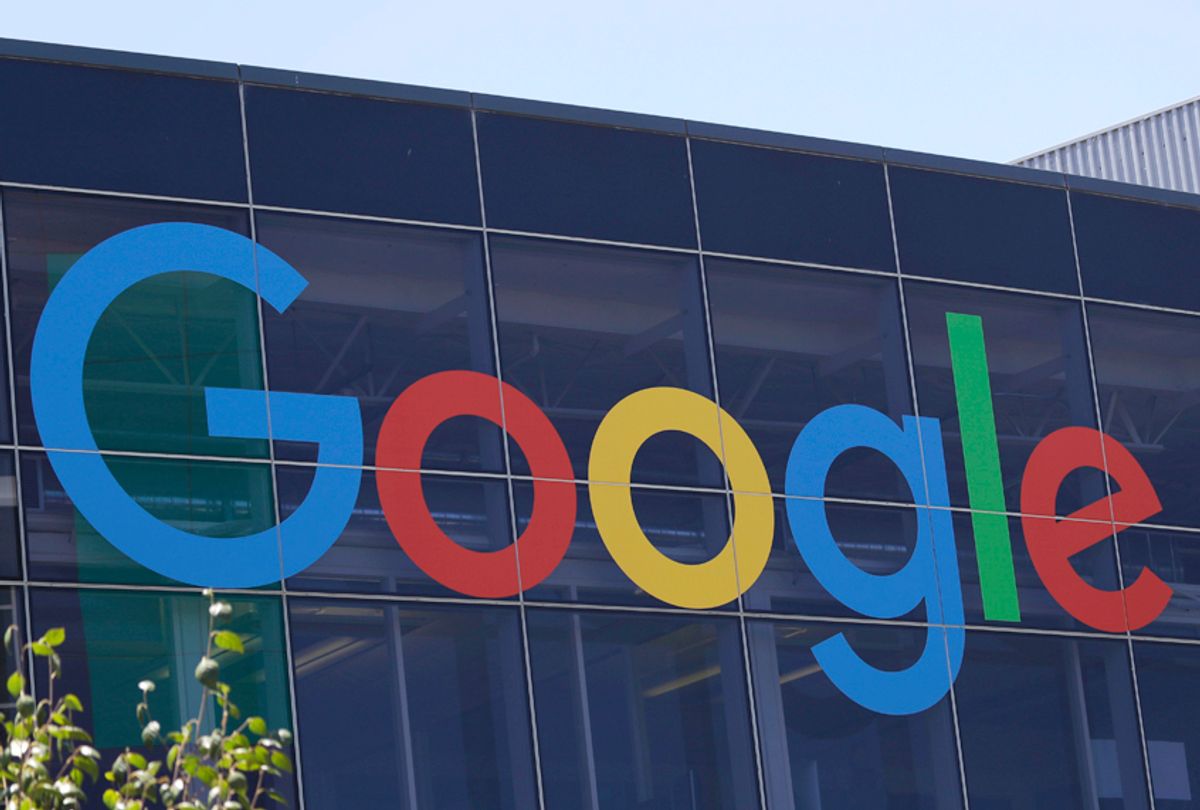President Donald Trump is extending his war against the media (or at least media outlets which are critical of him) to the world of technology — namely, the search engine Google.
While it is unclear what prompted Trump to make this claim, it is reminiscent of an article published two days earlier by the conservative outlet PJ Media which had the headline "96 Percent of Google Search Results for ‘Trump’ News Are from Liberal Media Outlets," according to The Washington Post. Trump has, on a number of previous occasions, unquestioningly bought into stories from less than reputable right-wing media outlets, from regurgitating a meritless talking point by Tucker Carlson about whites being persecuted in South Africa to praising notorious conspiracy theorist Alex Jones for having an "amazing" reputation.
READ MORE: When a woman is accused of sexual misconduct: The strange case of Avital Ronell
What makes this development different, however, is the fact that Trump isn't just praising and uncritically promoting right-wing propaganda; he is actively pondering using the government to force tech giants to show them preferential treatment. When asked if the Trump administration is thinking of regulating tech companies to help right-wing sites, Trump's economic adviser Larry Kudlow said, "We’ll let you know. We’re taking a look at it."
The Post also explained how Republicans have been complaining about tech companies long before Trump's recent tweet:
In July, Republicans accused Google, Twitter and Facebook of bias against conservatives at a hearing about “content filtering” practices of major tech companies. As my colleague Tony Romm reported, multiple Republican lawmakers on the panel used the hearing to accuse the companies of a litany of things that they believed were proof of bias.
Rep. Lamar Smith (R-Tex.) said Google was censoring the word “Jesus” in some search results, a claim he did not give Google time to address. Rep. Steve King (R-Iowa) asked Facebook about falling traffic for controversial conspiracy site Gateway Pundit.
The questions were similar to those asked of Facebook founder Mark Zuckerberg in April, when multiple Republican lawmakers used their time with Zuckerberg to talk about Diamond and Silk, the pro-Trump vloggers. Sen. Ted Cruz (R-Tex.) used their complaint as an example of “a pervasive pattern of political bias” during the hearing, for example. The context was, the midst of algorithmic changes that impacted traffic for many publishers on Facebook, Diamond and Silk had said that their traffic was falling, which was proof of Facebook’s anti-conservative bias.
Conservatives also complained about media bias when, earlier this month, Apple, Google and Facebook decided to take down content posted by Jones. They pointed to Jones' violation of community terms involving harassment as one of their reasons for doing so, although many Jones supporters characterized the decision as one in which big tech companies were blocking alternative media outlets.
Diamond adds that "somebody's going to have to step in and take a look at this here." Watching the program this morning, Trump tweets, "This is a very serious situation-will be addressed!" pic.twitter.com/YvydCbLvQG
— Matthew Gertz (@MattGertz) August 28, 2018
"When users type queries into the Google Search bar, our goal is to make sure they receive the most relevant answers in a matter of seconds," Google explained in a statement on Tuesday.
"Search is not used to set a political agenda and we don't bias our results toward any political ideology. Every year, we issue hundreds of improvements to our algorithms to ensure they surface high-quality content in response to users' queries. We continually work to improve Google Search and we never rank search results to manipulate political sentiment."



Shares